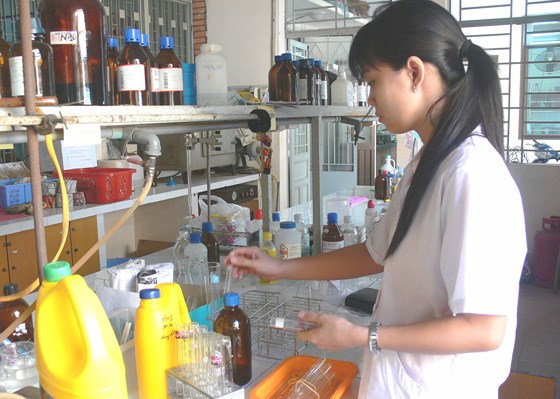[ad_1]

Vietnam’s universities are weak at scientific research
In the QS World University Ranking 2019 that ranks 1,011 leading universities in the world (QS World), HCMC National University appears in the group of schools ranked from 701st to 750th, while the Hanoi National University was in 801st-1,000th.
HCMC National University is listed among 69 percent of leading universities in QS World 2019 and belongs to the group of 4 percent of leading universities in the world out of 23,000 universities.
Vietnam has three schools listed in QS Asia, namely the Hanoi University of Science & Technology, Can Tho University and Hue University.
Nguyen Van Tuan, an education expert, in his article on Khoa Hoc & Phat Trien, commented that there is no reason to be glad about the appearance of the two schools in the ‘top 1,000’ list.
Other regional universities of the same scale ranked higher, namely Malaya (87th), Indonesia University (292nd) and Chulalongkorn (271st).
|
In the QS World University Ranking 2019 that ranks 1,011 leading universities in the world (QS World), HCMC National University appears in the group of schools ranked from 701st to 750th, while the Hanoi National University was in 801st-1,000th. |
Also according to Tuan, among the best known rankings, QS is the most criticized, especially for its methodology.
Analysts said one of the biggest errors is that it depends on comments from peers, i.e. lecturers and employers, about the prestige of universities.
Every year, QS sends hundreds of thousands of emails to lecturers and professors, asking them to give comments about the universities they know.
Only about 8 percent of lecturers and professors give replies. The comments from the modest number of professors amount to 40 percent of the marks given to every university.
The second problem is that it uses data provided by universities, while the schools themselves don’t have to take any legal responsibility about the authenticity of the data their provide.
In general, there exists a bias in the QS ranking.
The QS Ranking 2018 and 2019 puts Singapore Nanyang University of Technology above a lot of famous universities such as Princeton, Cornell and UCLA. UCLA is the home of 91 Nobel Prize and 23 Turing Prize winners.
Tuan went on to point out that scientific research is one of the weakest points of the two national universities. Each of them publish around 350 Clavirate scientific articles, just 1/10th of Malaya, Chulalongkorn and Mahidol universities.
HCMC National University has more than 57,000 students and 5,000 lecturers, but it had only 1,086 ISI articles and 5,371 citations.
RELATED NEWS
Two Vietnam’s universities listed in QS top 1,000 schools
University accreditation: ‘a game of the rich’?
Kim Nam
[ad_2]
Source link
